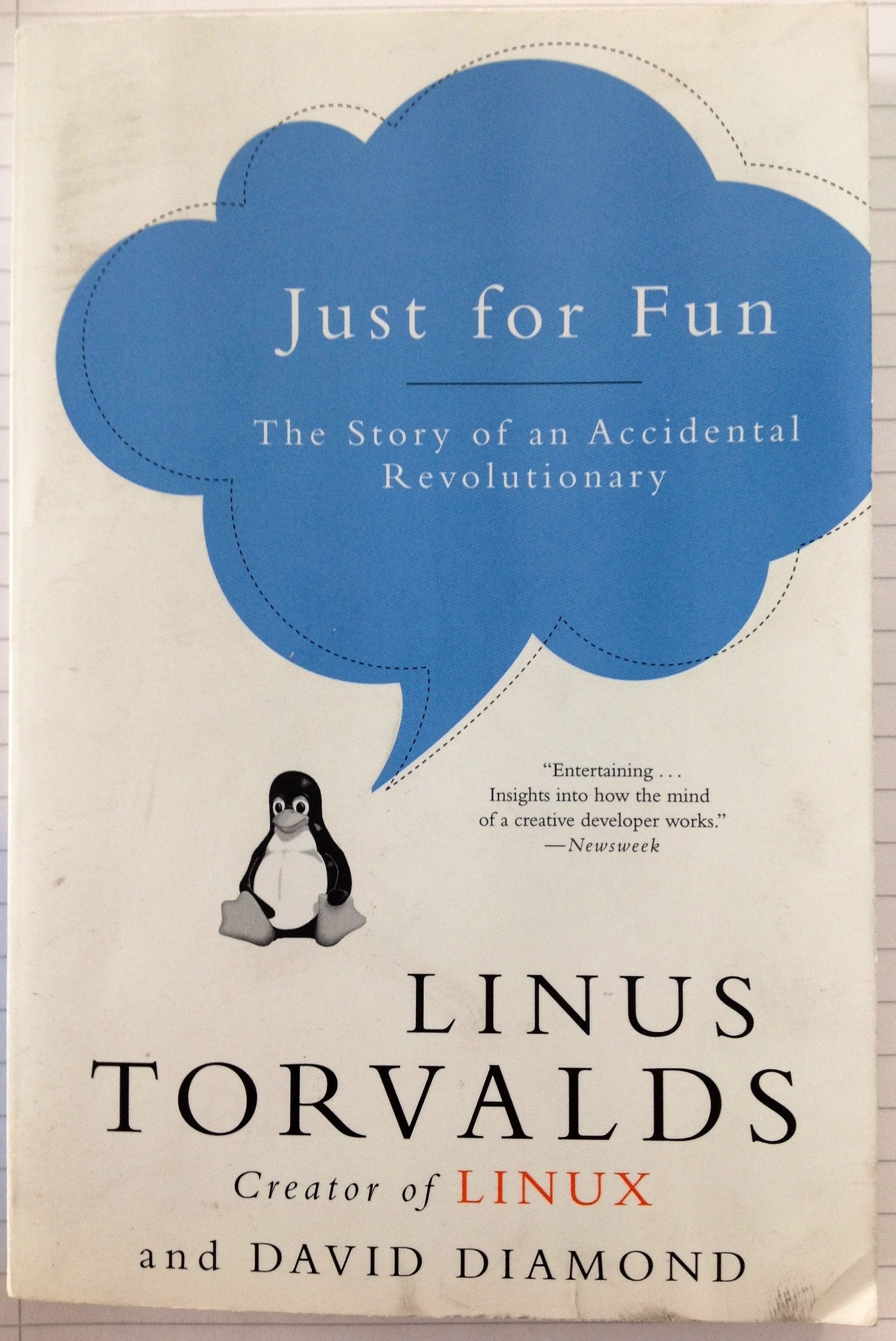The Biography of Linus Torvalds
Did you know there actually is a book about the creator of the Linux kernel? And that it was published twelve years ago in 2001? I have used Linux-based operating systems for almost 8 years, and I must admit I never heard of such a book up to three months ago. I ordered it the minute I found out about it. And I’m glad I did!

Just For Fun: The Story of an Accidental Revolutionary is about the life journey of the father of the Linux kernel - Linus Torvalds, but not only that. It is mostly written as an autobiography, with shorter sections between chapters from a co-author, a journalist, David Diamond (whose idea it was to write a book about Linus in the first place).
It starts with a short preface, a conversation between the two authors on a road trip Linus, his family, and David went on (their destination is an IKEA store in Los Angeles). During the trip, they talk about the book and Linus starts to explain a theory he has about the meaning of life - the law of Linus. The title of the book is in fact based on this theory (which is quite interesting).
Linus starts with describing the memories he has from his childhood in Finland with the same kind of wit you might know from his emails (the first chapter actually starts with: I was an ugly child.). He says, he doesn’t remember much of it, except when it comes to the computers he had. He spent a lot of time with his scientist grandfather, who introduced him to programming and let him use his computer. Linus did what any serious nerdy kid does. Loved maths, stayed indoors a lot, and programmed as much as he could.
The story continues to the times during which Linus got an extremely powerful (at that time) and also extremely expensive 386AT machine. He must have got a loan to be able to afford it. The things Linus did back in that time were basically only programming, sleeping, and eating pretzels. And of course the occasional snooker.
These were the early times and they certainly were not as easy as often portrayed by journalists. Even after the famous release announcement on the Minix’s news group, Linux was not an instant hit. It took quite a lot of hard work before it got any commercial attention, and even more work before Linux actually gained any commercial success.
Linus got a job at the University of Helsinki that allowed him to focus on developing Linux. He decided, he would like to turn Linux into a full featured operating system (which took a lot more work than he had expected). But after some time, he announced the release of Linux 1.0.0. Only this time it was not an email sent to a news group. The usual (and boring) email announcement turned into an event that took place at the university and attracted quite a lot of attention.
In the following chapters, Linus writes about his other early experiences with public speaking and his encounters with journalists coming to his house. Linus explains why he took the job at the Transmeta Corporation and also his decision to relocate from Finland to the US. He also mentions the stock grants he received from Red Hat and various other Linux companies (and why he refused to work for any of them).
Towards the end of the book, there are several essays on open source, intellectual property, copyright, and the future of Linux presenting his own opinions on these topics. Interestingly enough, Linus mentions, that he expects the Linux kernel to power some sort-of handheld devices for reading email in the future (the smart-phones that are common today were certainly not yet that ubiquitous in early 2000s).
This book was a quite an interesting read for me. It is funny and casual, so it reads quite fast. And if you actually use Linux or even participate in the community that surrounds the Linux kernel, I certainly recommend picking it up!

